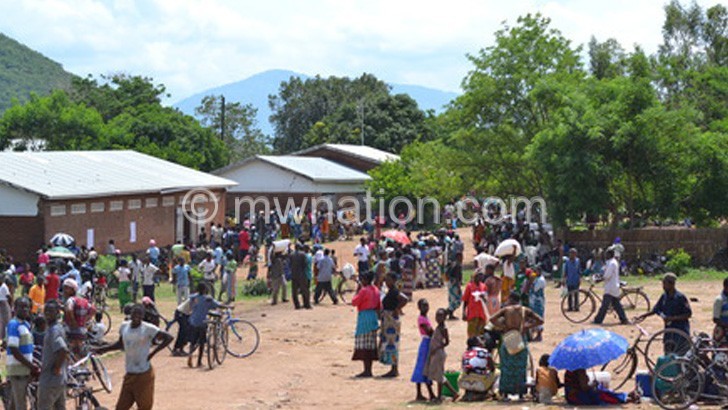Agro reforms to fuel inequality—IMF
Malawi’s agricultural sector reforms meant to enhance productivity and diversification could increase inequality despite registering gains in efficiency and increased output, the International Monetary Fund (IMF) has said.
According to the IMF staff discussion note for January 2017 published on its website titled Macro Structural Policies and Income Inequality in Low-Income Developing Countries, shift in production from maize to other high- value agricultural crops, which would also stimulate exports, could translate into a higher capital stock for the economy while at the same time increasing inequality.

“The reforms would reduce incentives to produce maize and create more efficient allocation of resources through a shift in production from maize to other higher-value agricultural goods, which would also stimulate exports,” reads the report in part.
It says inputs for exporters would be cheaper as their supply rises, increasing the income of these agents, which would translate into a higher capital stock for the economy, higher output and higher private consumption.
The IMF further says reforms would increase inequality since the subsidy system works as a cash transfer, adding that reducing subsidies would lead to an important reduction in the income of small and poor farmers, exacerbating poverty and inequality.
According to the IMF, cash transfers to the rural poor can help mitigate the impact of the subsidy reforms on poverty and inequality in the short- term, while higher spending in agricultural research and development would boost productivity in the long-term.
“Well-targeted cash transfers would be a very efficient way to reach households most affected by the reform. At the same time, increasing spending for agricultural research and development would also increase the productivity of small farmers, boosting agricultural profitability and income,” reads the IMF report.
This means that increase in agricultural research and development combined with an expansion of the cash transfer programme would reduce inequality.
These measures would also amplify the impact of the subsidy reforms on private investment and boost gross domestic product (GDP) and in turn bring additional revenues, according to the IMF.
In 2005, Malawi introduced subsidies on maize seed and fertilisers under the Farm Input Subsidy Programmes (Fisp) to support smallholder farmers, reduce poverty and address food security problems.
However, because of its poor design and targeting, the programme resulted in overproduction of maize without addressing food security, according Civil Society Agriculture Network (CisaNet).
In its five-year Fisp budget tracking report for the financial years 2011/12 and 2015/16, CisaNet called for institutional reforms in the Fisp programme line if the programme is to fully benefit Malawians.
In an earlier interview, chairperson of the Parliamentary Committee on Agriculture and Irrigation Joseph Chidanti-Malunga faulted Fisp for overcrowding activities of the Ministry of Agriculture, Irrigation and Water Development and that people being targeted are poor whose production is minimal. n





